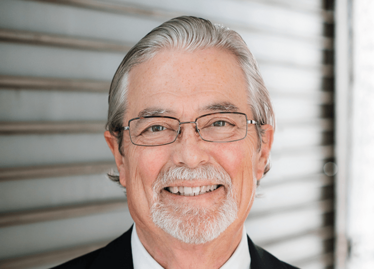Cleaning Up Cannabis
Sitting Down With…Robert Martin, Chief Operating Officer of CW Analytical and Executive Director of the Association of Commercial Cannabis Laboratories (ACCL), Oakland, CA, USA.

What did you do before joining the cannabis industry?
I’m a biologist and botanist by training. I earned a PhD in botany/mycology from Ohio University and spent 20 years working for the food industry in quality assurance and R&D. I certainly never dreamed I would one day be running a cannabis lab! After leaving the corporate world, I continued my career in food safety as a consultant, working with some of the largest companies in the world, including Nestlé and Coca Cola.
How did you get involved in cannabis analysis?
As we get older, most of us face some health challenges, and in the 2000s a number of my friends got sick. They knew I was a long-time cannabis smoker, and came to me for advice on safety. I realized I had no answers for them, so I started asking questions at cannabis dispensaries. The answers I received were not reassuring – there was no testing other than for potency, and no quality assurance. I decided to do something about it and, together with environmental chemist John Oram, founded CW Analytical in 2009.
We now have a team of highly qualified scientists, developing relevant analyses and carrying out testing to accredited standards. It’s a far cry from the ‘stoner’ mentality seen in media portrayals of the cannabis industry; you don’t need flowers in your hair and painted faces to join our team! I want to bring the best elements of the corporate experience with me – and leave the worst behind.
Is there a market for cleaner cannabis?
Absolutely. It was obvious to me in the food industry and it’s obvious to me now. Just look at the meteoric rise of Whole Foods Market in the US and you can see that people are willing to pay significantly more for organic, high-quality groceries. The success of organic food reflects a greater consciousness of just how ‘dirty’ our agricultural practices are on a large scale.
How can cannabis laboratories help raise standards in the industry?
Cannabis labs have played a key role. At first, we concentrated on microbiological testing – bacterial contamination was rife and when we spoke to growers it was obvious why. Often, they were dragging the harvested plants across farmyards and hanging them up to dry in dirty barns. Once they started to use plastic sheets and stainless steel, it was amazing to see how fast the samples cleaned up. In California, many growers are now beyond that. The new challenge is pesticide contamination. Just in this past 12 months, our laboratories have started to acquire triple quadrupole mass spectrometers to detect trace levels of pesticides that previously may have flown under our radar.
In 2011, we set up the Association of Commercial Cannabis Laboratories (ACCL), which helps bring more professionalism to this emerging industry.
What exactly is ACCL’s role?
It’s an unconventional business we work in; many of our clients lack knowledge of the basics of running a business (business plans, overheads, and so on). We’re trying to make them understand the responsibility they hold when they produce a product for human consumption. All our members pledge to follow strict guidelines on everything from scientific proficiency to professional conduct.
We encourage labs to gain ISO accreditation, and help them stay at the forefront of technology by working with analytical equipment companies. The ACCL has facilitated partnerships between our members and companies like SCIEX and Agilent to test new instruments.
We also lobby for greater recognition of the work of cannabis labs. Right now, we’re busy lobbying to make sure that laboratories are properly represented in new legislation unfolding in California. Otherwise, we could lose the ground we have gained over the past few years in quality standards.
What are the challenges of running a cannabis lab?
People assume that if you are involved in the cannabis industry in any capacity, it’s a license to print money. In fact, that is the furthest thing from the truth. Part of my job as Director of ACCL is to help people understand that laboratories are providing a service to our industry, and often for very little reward. We spend a lot of time, effort, and money, but unlike growers and dispensers, we’re not getting rich from cannabis.
Qualified staff, high-tech analytical instruments and ISO certification are expensive, but our prices are much lower than most analytical labs, because our customers can’t or won’t pay more. Most cannabis labs operate on a ‘thin ice’ principle – as long as you keep moving, the ice won’t break!
What keeps you motivated?
The main answer is: the patients. I once met the father of a three-year-old whose cognitive development had been halted by constant seizures. With CBD oil treatment, the child’s seizures receded and she was able to speak her first words. That is the type of story that keeps me coming to work. Some people exaggerate the health benefits; but ultimately, if all cannabis does for someone going through a grueling illness is help them have a good day, then I think it’s worthwhile.
I’m putting every ounce of my experience and know-how from academia and industry into CW Analytical, and it’s thrilling work. If we can succeed, we will leave a template for other cannabis analytical labs to follow – a valuable legacy. If we can instill a clean, rational approach to quality assurance within the industry, I’ll be a happy man.












